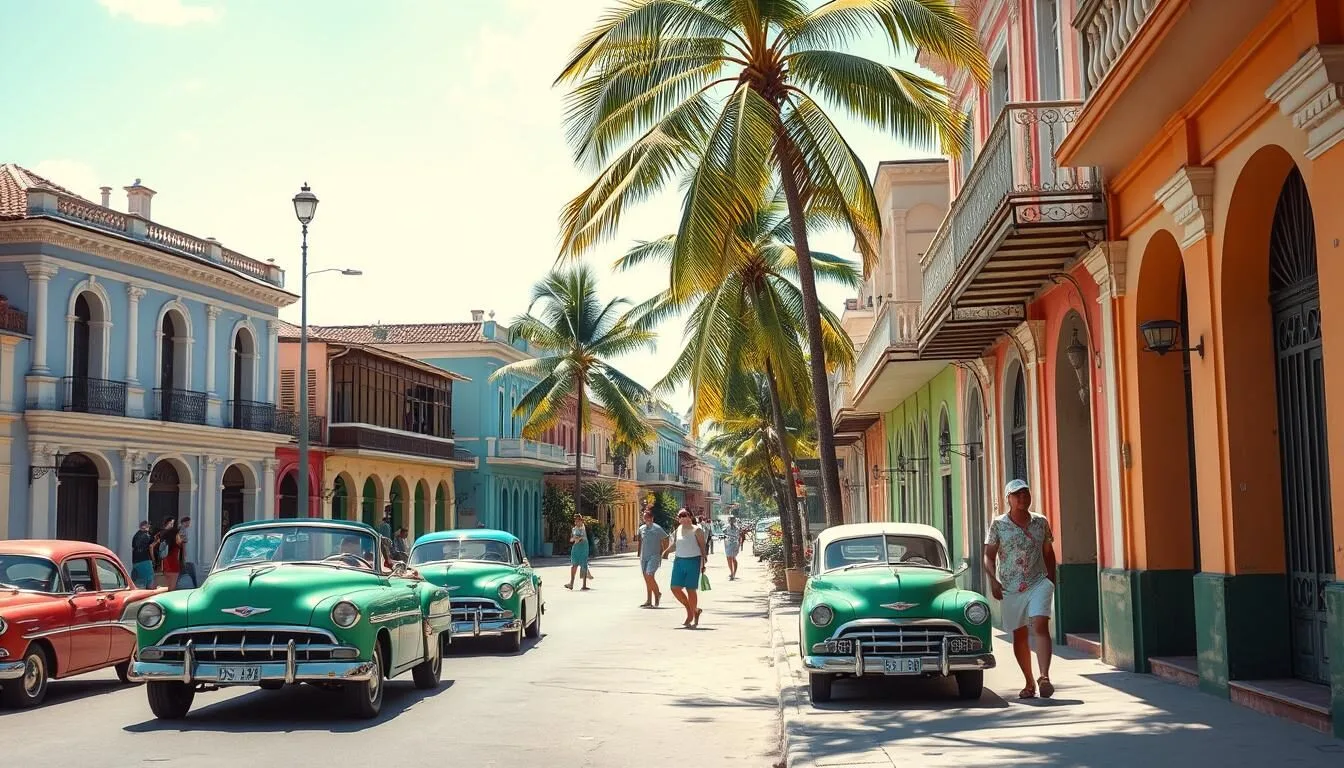Did you know that Jovellanos, affectionately called “Bemba” by locals, is one of Cuba’s most authentic industrial towns where sugar production has shaped the community for generations? Unlike the tourist-heavy coastal areas, this hidden gem in Matanzas province offers travelers a genuine glimpse into everyday Cuban life, with fewer than 2% of international visitors venturing to explore its charming streets and rich cultural heritage.
About Jovellanos
Nestled in the heart of Matanzas province, Jovellanos is a municipality with a fascinating history dating back to 1842. Originally founded as Corral de la Bemba on an old ranch, the town was renamed in 1870 to honor Spanish writer Gaspar Melchor de Jovellanos. Today, this industrial hub maintains its authentic Cuban character while serving as a gateway to explore the wider Matanzas region.
The town is divided into four distinct barrios (neighborhoods): Asunción, Isabel, Realengo, and San José, each offering its own flavor of local culture. What makes Jovellanos special is the harmonious coexistence of its diverse population, creating a welcoming atmosphere for visitors seeking to experience Cuba beyond the typical tourist destinations.
Ready to explore Jovellanos?
Start planning your Cuban adventure today with these trusted travel resources.
Getting There & Planning Your Journey
Reaching Jovellanos requires some planning, as it’s not on the main tourist circuit. The town is located approximately 120 km (75 miles) east of Havana and about 30 km (19 miles) south of the popular beach resort of Varadero.
Transportation Options
- Fly into Juan Gualberto Gómez Airport in Varadero or José Martí International Airport in Havana, then arrange ground transportation to Jovellanos.
- Hire a taxi from Varadero (approximately 30-40 minutes) or Havana (approximately 2 hours).
- Rent a car to explore at your own pace – the roads connecting major cities are generally well-maintained.
- Take a Viazul bus to Matanzas city, then arrange local transportation to Jovellanos.
Need transportation in Cuba?
Secure your rental car in advance for the best rates and availability.
Best Time to Visit & Weather Tips
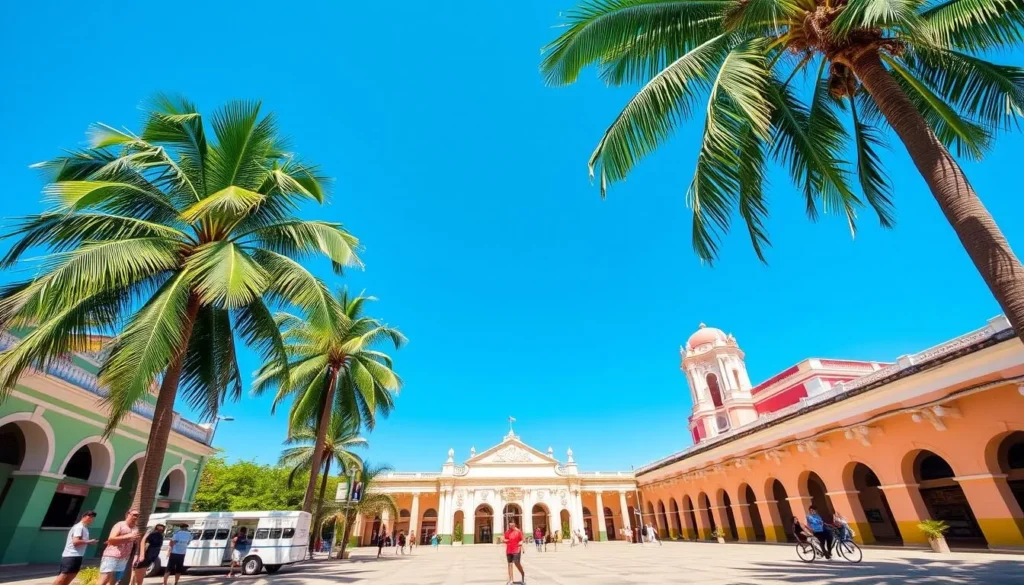
Jovellanos experiences a tropical climate with distinct wet and dry seasons. Understanding the weather patterns will help you plan your visit for the most comfortable experience.
Best Time to Visit Jovellanos
| Season | Months | Temperature | Precipitation | Recommendation |
| Dry Season (Best) | December – April | 22-29°C (72-84°F) | Low | Ideal for sightseeing and outdoor activities |
| Shoulder Season | November, May | 24-31°C (75-88°F) | Moderate | Good balance of weather and fewer tourists |
| Wet Season (Avoid) | June – October | 26-33°C (79-91°F) | High (hurricane risk) | Not recommended due to heavy rainfall and potential hurricanes |
Weather Tips
What to Pack
- Lightweight, breathable clothing
- Sun protection (hat, sunglasses, sunscreen)
- Comfortable walking shoes
- Light rain jacket (even in dry season)
- Insect repellent
Weather Considerations
- Plan outdoor activities for mornings and late afternoons
- Take afternoon breaks during the hottest hours
- Stay hydrated throughout the day
- Check hurricane forecasts if traveling June-November
- Expect brief afternoon showers even in dry season
Getting Around Locally
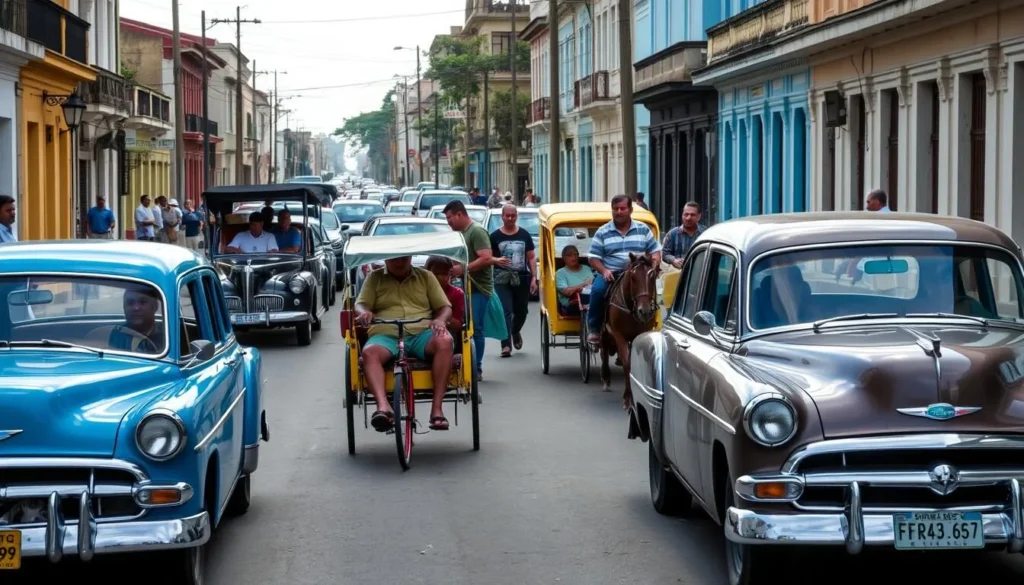
Jovellanos is a relatively compact town, making it easy to explore on foot. However, there are several transportation options to help you navigate both the town and surrounding areas.
Local Transportation Options
- Walking: The most enjoyable way to experience Jovellanos’ authentic atmosphere and interact with locals.
- Bici-taxis: Three-wheeled bicycle taxis are common for short distances within town.
- Horse-drawn carriages: A traditional and charming way to get around, especially popular with visitors.
- Taxis: Available for longer journeys or trips to nearby attractions.
- Rental cars: Provide the most flexibility for exploring the wider Matanzas province.
Local Tip: When using taxis, always agree on the fare before starting your journey. Most drivers in Jovellanos don’t use meters, so negotiation is expected.
Where to Stay
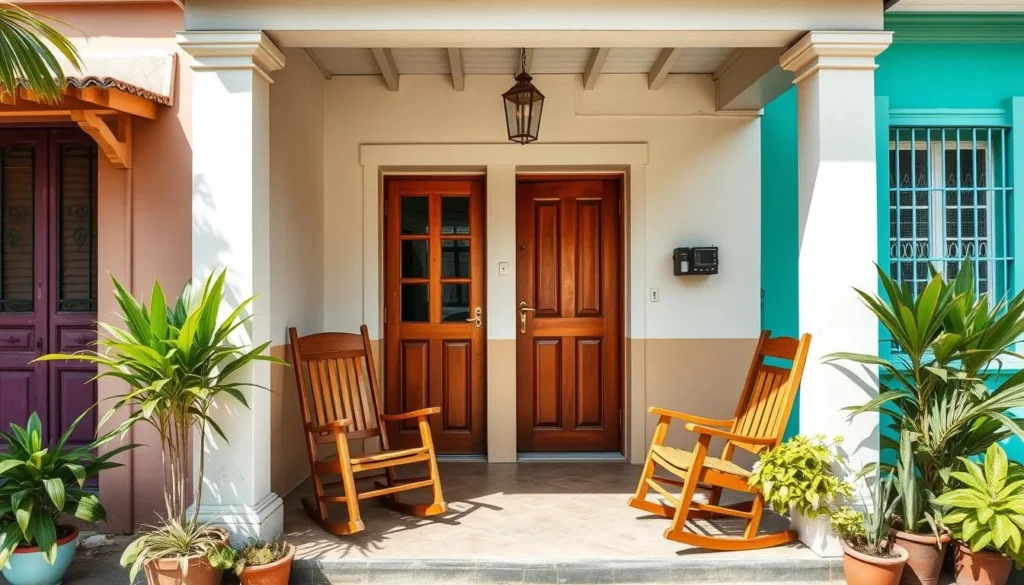
While Jovellanos doesn’t offer large hotels or resorts like those found in Varadero or Havana, it provides authentic accommodation options that allow you to experience genuine Cuban hospitality.
Accommodation Options
Casas Particulares
These family-run guesthouses are the most common accommodation option in Jovellanos. Staying in a casa particular offers an authentic experience with home-cooked meals and local insights from your hosts.
Price range: 25-40 CUC per night
Finca Luna Rural Hotel
This small rural hotel offers a peaceful retreat with three bedrooms accommodating up to eight guests. Amenities include a pool, air conditioning, and pet-friendly policies.
Price range: 35-50 CUC per night
Nearby Options
For those seeking more conventional accommodations, the nearby cities of Matanzas (30 km) and Varadero (35 km) offer a wider range of hotels and resorts.
Price range: 50-200+ CUC per night
Find Your Perfect Stay in Cuba
Book your accommodation in advance to secure the best options.
Dining & Local Cuisine
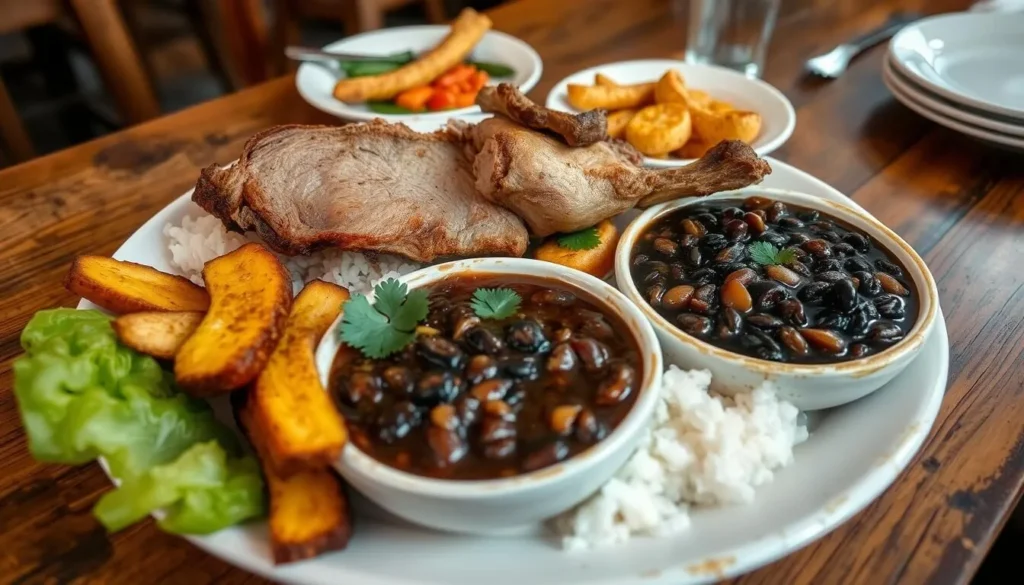
Jovellanos offers authentic Cuban cuisine at local paladares (family-run restaurants) and street food vendors. The food scene here is less touristy and more authentic than in major Cuban destinations.
Must-Try Local Dishes
- Ropa Vieja: Shredded beef slow-cooked with vegetables and spices.
- Congri: Rice cooked with black beans, a staple of Cuban cuisine.
- Lechón Asado: Slow-roasted pork, often the centerpiece of Cuban celebrations.
- Tostones: Twice-fried plantain slices, typically served as a side dish.
- Yuca con Mojo: Cassava with garlic sauce.
- Flan: A sweet caramel custard dessert popular throughout Cuba.
Dining Tips
Where to Eat
- Local paladares offer the most authentic dining experience
- Casa particular hosts often provide home-cooked meals
- Street food vendors for quick, inexpensive options
- Central plaza area has several casual dining options
Good to Know
- Meal times: Lunch 12-3pm, Dinner 7-10pm
- Reservations rarely needed except at popular paladares
- Tipping 10% is customary for good service
- Many restaurants accept both CUC and CUP
Local Recommendation: Ask your casa particular host about “menu del día” (menu of the day) options at local paladares. These fixed-price meals typically offer the best value and freshest ingredients.
Attractions, Sightseeing & Activities
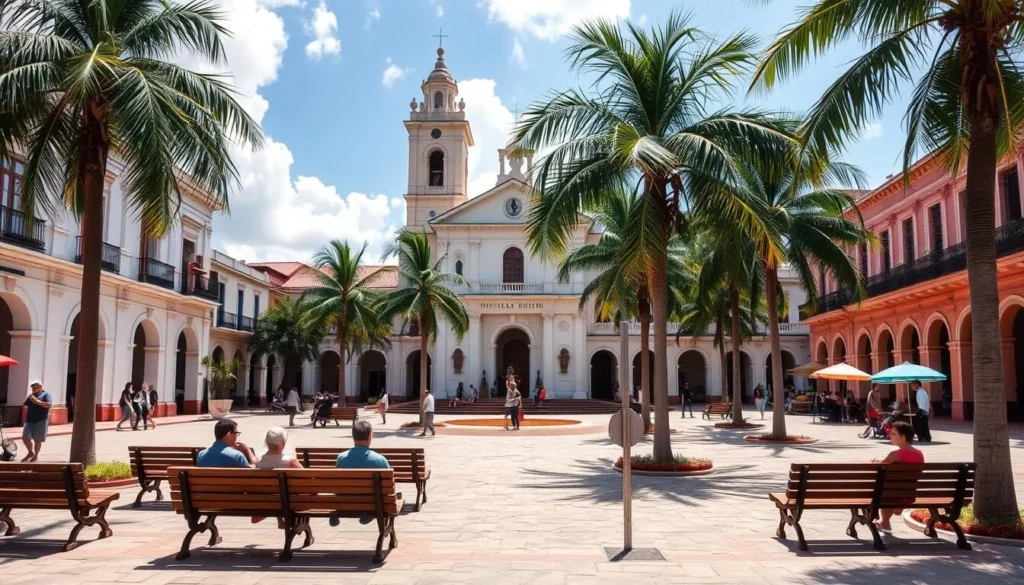
While Jovellanos may not have the famous attractions of Havana or Trinidad, it offers visitors an authentic glimpse into everyday Cuban life and serves as an excellent base for exploring the wider Matanzas province.
Within Jovellanos
- Central Plaza: The heart of town life where locals gather, featuring traditional architecture and often hosting community events.
- Local Markets: Experience authentic Cuban commerce and interact with friendly vendors selling fresh produce and handcrafted items.
- Sugar Industry Heritage: Explore the town’s industrial heritage with remnants of sugar production facilities that shaped the region’s development.
- Community Center: Often hosts cultural performances and art exhibitions by local artists.
Day Trips from Jovellanos
Varadero Beach
Just 35 km north of Jovellanos, Varadero boasts one of Cuba’s most stunning beaches with 20 km of white sand and turquoise waters. Perfect for a day of relaxation or water activities.
Distance: 35 km (22 miles)
Matanzas City
Known as the “Athens of Cuba” for its cultural significance, Matanzas offers beautiful architecture, museums, and the famous Pharmaceutical Museum – the only one of its kind in the Americas.
Distance: 30 km (19 miles)
Ciénaga de Zapata
This vast wetland ecosystem is Cuba’s largest protected area and a UNESCO Biosphere Reserve. Perfect for nature lovers with opportunities for bird watching, hiking, and exploring pristine ecosystems.
Distance: 90 km (56 miles)
Explore the Best of Cuba
Discover guided tours and activities throughout the Matanzas region.
Museums, Cultural Spots & Festivals
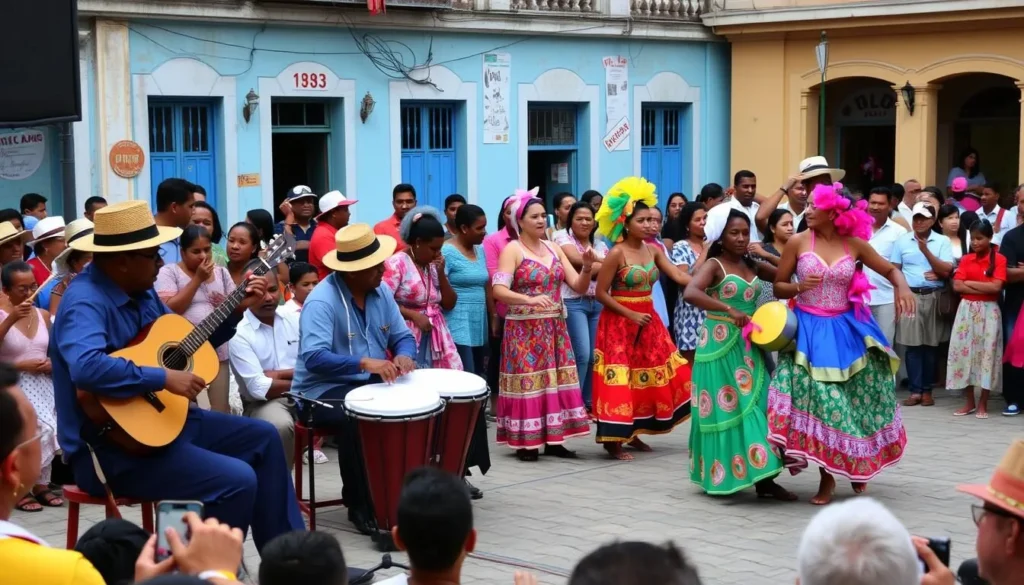
While Jovellanos itself has limited formal museums, the surrounding Matanzas province is rich in cultural heritage. The town occasionally hosts local festivals and cultural events that provide insight into authentic Cuban traditions.
Cultural Experiences in and around Jovellanos
- Local Music: Experience authentic Cuban rhythms at small venues where locals gather to enjoy traditional music.
- Rumba Performances: Matanzas province is the birthplace of rumba, Cuba’s first national dance. Look for performances in Jovellanos and nearby towns.
- Provincial Museum of Matanzas: Located in nearby Matanzas city, this museum showcases the region’s history and cultural development.
- Pharmaceutical Museum: A unique attraction in Matanzas city featuring an intact 19th-century pharmacy with original equipment and medicines.
- Slave Route Museum: Located in Matanzas, this powerful museum documents the history of slavery in the region.
Local Festivals
Carnival (July-August)
Like many Cuban towns, Jovellanos celebrates carnival with music, dance, colorful costumes, and street parades. The exact dates vary by year, but festivities typically occur during the summer months.
Rumbero Festival
This important cultural event takes place annually in the Sauto Theater in Matanzas city. The festival celebrates rumba music and dance, showcasing the province’s rich cultural heritage.
Sports, Nature & Outdoor Experiences
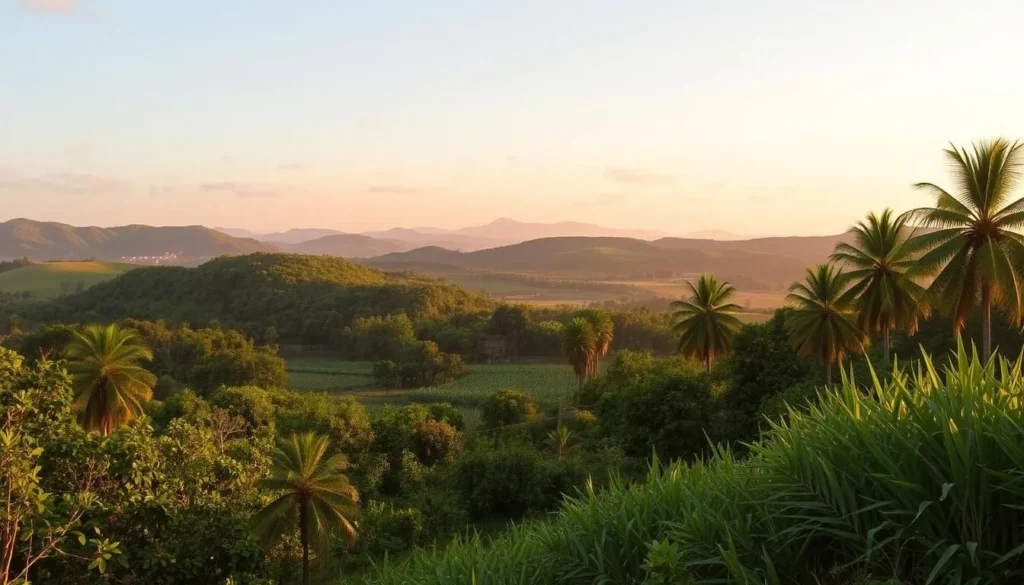
The area surrounding Jovellanos offers numerous opportunities for nature lovers and outdoor enthusiasts. From exploring the countryside to visiting nearby natural attractions, there’s plenty to discover beyond the town itself.
Outdoor Activities
Countryside Exploration
Rent a bicycle or arrange a guided tour to explore the scenic countryside around Jovellanos, with its sugar cane fields, small farms, and rural communities.
Ciénaga de Zapata National Park
This vast wetland ecosystem is perfect for bird watching, hiking, and exploring pristine natural environments. The park is home to numerous endemic species and diverse ecosystems.
Beaches
While Jovellanos itself is inland, the world-famous beaches of Varadero are just a short drive away, offering swimming, snorkeling, and water sports opportunities.
Local Sports
- Baseball: Cuba’s national passion, with impromptu games often taking place in local fields and parks.
- Dominos: A favorite pastime among locals, often played in parks and street corners.
- Fishing: The San Juan River offers freshwater fishing opportunities for those interested in trying their luck.
Eco-Tourism Tip: When visiting natural areas, consider hiring a local guide. They can enhance your experience with their knowledge of local flora, fauna, and history while supporting the local economy.
Safety, Etiquette & Local Customs
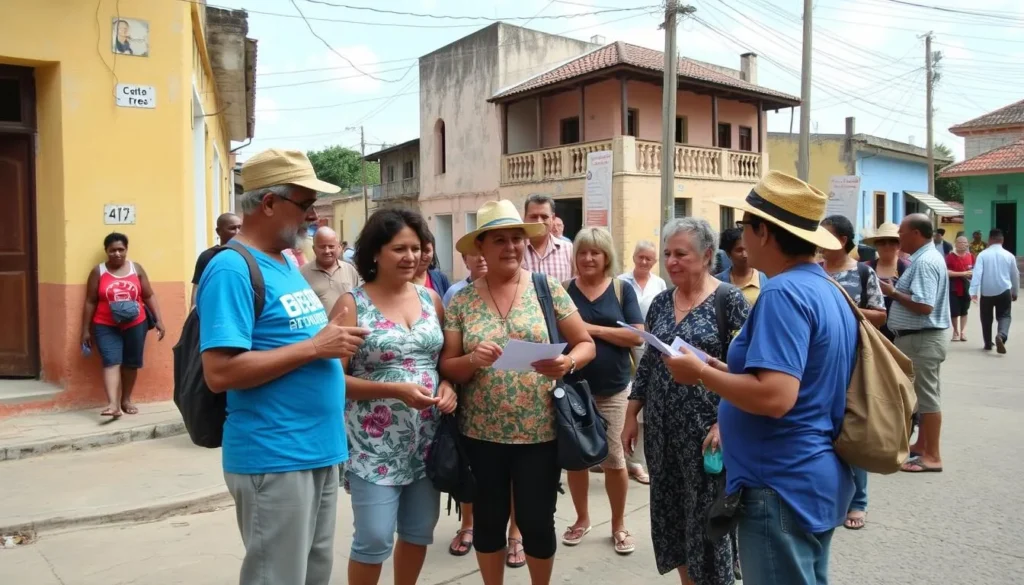
Jovellanos is generally a safe destination for travelers, with low crime rates and friendly locals. Understanding a few cultural norms and practical considerations will help ensure a smooth and respectful visit.
Safety Tips
- Jovellanos is typically safer than larger Cuban cities, but standard travel precautions still apply.
- Keep valuables secure and avoid displaying expensive items.
- Carry a photocopy of your passport rather than the original when exploring.
- Drink bottled water to avoid potential stomach issues.
- Have a basic first aid kit, as medical facilities in small towns may be limited.
Cultural Etiquette
Do’s
- Greet people with a friendly “Hola” or “Buenos días”
- Accept offers of coffee or refreshments when visiting homes
- Ask permission before taking photos of people
- Learn basic Spanish phrases – efforts are appreciated
- Dress casually but modestly, especially when visiting local homes
Don’ts
- Avoid discussing politics unless initiated by locals
- Don’t photograph military or police facilities
- Avoid excessive public displays of affection
- Don’t expect consistent internet access
- Avoid drinking tap water or consuming unpeeled fruits
Important: Cuba has two currencies – Cuban Convertible Peso (CUC) for tourists and Cuban Peso (CUP) for locals. Be aware of which currency you’re using and receiving as change. Most tourist services in and around Jovellanos will be priced in CUC.
Practical Travel Tips
These practical tips will help you navigate the unique aspects of traveling in Jovellanos and Cuba in general, ensuring a smoother and more enjoyable experience.
Essential Information
Money Matters
- Bring cash – credit cards from U.S. banks are not accepted
- Exchange money at official CADECA offices
- Euro or Canadian dollars often get better rates than USD
- Budget 50-70 CUC per day for mid-range travel
- Tipping 10% is customary in restaurants and for services
Communication
- Internet access is limited and typically available at hotels or ETECSA offices
- Purchase internet cards for hourly access
- Download offline maps before your trip
- Learn basic Spanish phrases – English is not widely spoken
- International calling is expensive – use internet when available
Packing Essentials
- Medications: Bring all necessary prescriptions and basic over-the-counter remedies.
- Toiletries: Quality toiletries can be difficult to find in smaller towns like Jovellanos.
- Power adapter: Cuba uses 110V with American-style plugs, but older buildings may have European-style outlets.
- Flashlight: Power outages can occur, especially in smaller towns.
- Gifts: Small items like pens, soaps, or t-shirts are appreciated if staying with local families.
- Snacks: Bring some favorites for times when food options might be limited.
“The true essence of Cuba isn’t found in resort towns but in places like Jovellanos, where daily life unfolds authentically and visitors become temporary neighbors rather than tourists.”
Experience the Authentic Cuba in Jovellanos
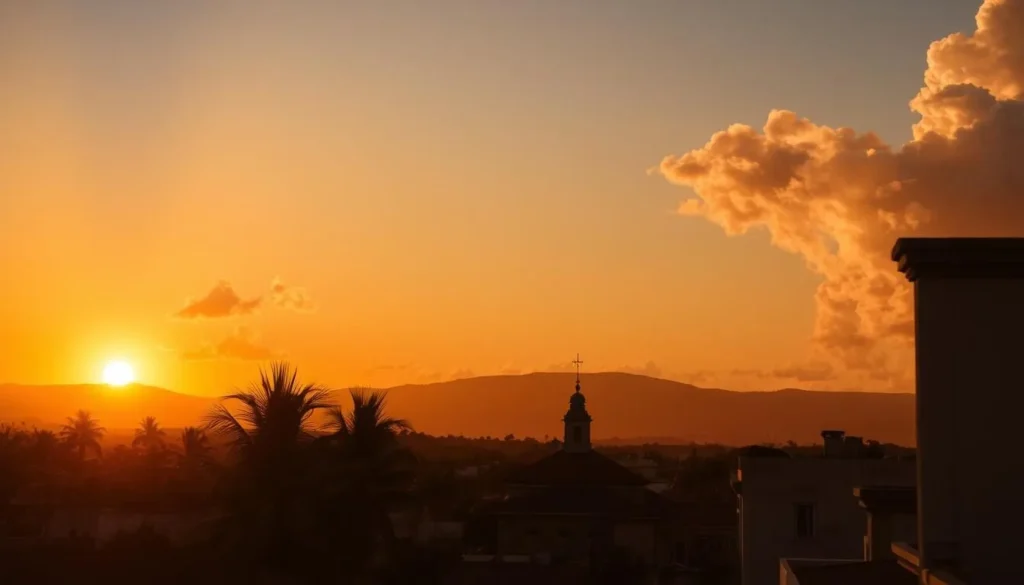
Jovellanos offers travelers a rare opportunity to experience the real Cuba beyond the tourist hotspots. While it may lack the famous attractions of Havana or the pristine beaches of Varadero, what it offers instead is something increasingly precious in our globalized world – authenticity.
From the friendly locals who still refer to their town affectionately as “Bemba” to the harmonious coexistence of its diverse population, Jovellanos provides a window into everyday Cuban life that few visitors get to witness. Use this charming town as your base to explore the wider treasures of Matanzas province, from natural wonders to cultural landmarks.
Whether you’re sipping coffee with a local family, exploring the industrial heritage that shaped the region, or using Jovellanos as a gateway to discover nearby attractions, you’ll come away with a deeper understanding of Cuba’s heart and soul. The memories you create here will be all the more special for being off the beaten path.
Ready to discover the authentic Cuba?
Start planning your journey to Jovellanos today.
The above is subject to change.
Check back often to TRAVEL.COM for the latest travel tips and deals.
